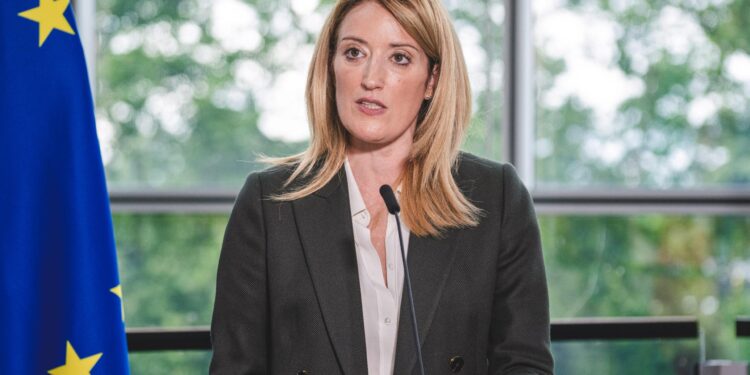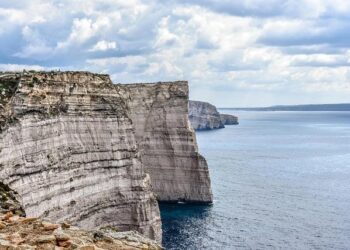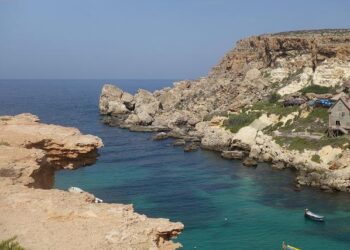Roberta Metsola, the President of the European Parliament, has definitively ruled out a return to Maltese national politics, emphasizing her commitment to her role in Brussels. In an exclusive interview with Euractiv, Metsola stated that she “cannot abandon” her duties at the heart of the European Union, signaling a clear priority for her future political career. This announcement marks a significant moment for Malta’s political landscape, as Metsola remains a key figure in EU affairs during a period of heightened regional challenges.
Metsola Confirms Commitment to Brussels Over Maltese Political Scene
Roberta Metsola, the President of the European Parliament, has firmly dismissed any speculation about returning to Malta’s national political arena. In a recent statement, Metsola emphasized her dedication to serving the interests of the European Union from Brussels, highlighting her belief that abandoning this role would be a disservice both to her office and to the wider European community. She expressed that her commitment to European diplomacy and policymaking remains unwavering, signaling a long-term vision centered on strengthening EU cooperation rather than domestic political recalibration.
Her stance underscores several key priorities that define her current mandate, including:
- Advancing EU digital transformation and green policies
- Championing fundamental rights and rule of law across member states
- Fostering unity amid growing challenges within the Union
Below is a comparison highlighting Metsola’s focus in Brussels versus hypothetical roles in Maltese politics:
| Focus Area | Brussels Role | Maltese Politics |
|---|---|---|
| Policy Scope | Pan-European | National |
| Influence | EU-wide legislation | Local governance |
| Political Impact | Long-term Union cohesion | Domestic electoral dynamics |
Implications for Malta’s Political Landscape and EU Representation
Roberta Metsola’s firm decision to remain in Brussels signals a profound shift in the dynamics of Maltese domestic politics. By categorically ruling out a return to national politics, Metsola effectively opens the field for emerging leaders within Malta’s political parties, particularly the Nationalist Party, to assert themselves on the home front. Her choice to prioritize her role in the European Parliament reinforces Malta’s growing commitment to strengthening its influence within the European Union rather than focusing solely on domestic political maneuvering. This reorientation could accelerate reform agendas aligned with broader EU policies, particularly in areas such as rule of law, environmental initiatives, and digital transformation.
- Enhanced EU leverage: Metsola’s continued presence in key EU committees amplifies Malta’s voice in Brussels.
- Political renewal at home: New entrants may redefine strategies within Malta’s major parties.
- Strengthening EU ties: Signals a long-term commitment to shaping EU policy from a Maltese perspective.
| Impact Areas | Potential Outcomes |
|---|---|
| National Leadership | Space for rising leaders to emerge |
| EU Representation | Increased policy influence within EU institutions |
| Political Strategy | Shift towards stronger integration with EU priorities |
Expert Recommendations for Navigating Leadership Transitions in Maltese Politics
Leadership changes in Maltese politics require a delicate balance between continuity and innovation, particularly given the island nation’s complex political landscape. Experts emphasize the importance of clear communication strategies to maintain public trust during these transitions. They advise incoming leaders to engage transparently with constituents to address uncertainties and to harness collaborative leadership styles that empower a broader range of stakeholders. This approach ensures not only stability but also fosters a dynamic environment for policy development and governance.
Moreover, managing expectations both within party structures and among the electorate is critical. Analysts suggest that new leaders should establish immediate rapport with key political institutions and international partners to reinforce Malta’s strategic interests. A structured transition plan emphasizing knowledge transfer and consistent messaging can mitigate risks of fragmentation. Below is a breakdown of recommended actions for smooth leadership transitions in the Maltese political context:
- Transparent communication: Frequent updates and openness to dialogue.
- Stakeholder engagement: Inclusion of diverse political voices in decision-making.
- Strategic continuity: Preserve core policies while allowing room for innovation.
- International liaison: Maintain strong relations with EU institutions and allies.
| Challenge | Expert Recommendation |
|---|---|
| Public uncertainty | Proactive communication strategy |
| Internal party divisions | Inclusive leadership and mediation |
| Maintaining EU relations | Consistent diplomatic engagement |
| Policy disruptions | Gradual implementation of reforms |
Future Outlook
As Roberta Metsola firmly closes the door on a return to Maltese politics, her commitment to her role in Brussels underscores the significance of her work within the European Parliament. Her decision highlights the growing importance of EU-level leadership amid both regional and global challenges. Observers will be watching closely as Metsola continues to shape policy and represent Maltese interests on the European stage.
















